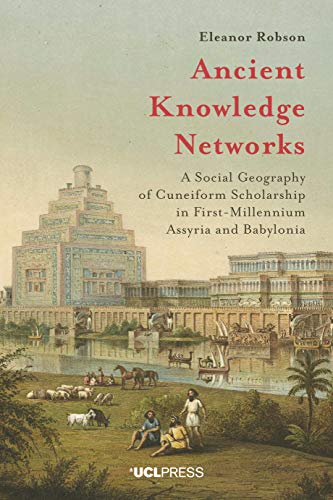What do you think?
Rate this book


Ancient Knowledge
Networks is a book about how knowledge travels, in minds and bodies as well
as in writings. It explores the forms knowledge takes and the meanings it
accrues, and how these meanings are shaped by the peoples who use it.
Addressing the relationships between political power, family
ties, religious commitments and literate scholarship in the ancient Middle East
of the first millennium BC, Eleanor Robson focuses on two regions where
cuneiform script was the predominant writing medium: Assyria in the north of
modern-day Syria and Iraq, and Babylonia to the south of modern-day Baghdad. She
investigates how networks of knowledge enabled cuneiform intellectual culture
to endure and adapt over the course of five world empires until its eventual
demise in the mid-first century BC. In doing so, she also studies Assyriological
and historical method, both now and over the past two centuries, asking how the
field has shaped and been shaped by the academic concerns and fashions of the
day. Above all, Ancient Knowledge
Networks is an experiment in writing about ‘Mesopotamian science’, as it
has often been known, using geographical and social approaches to bring new
insights into the intellectual history of the world’s first empires.
517 pages, Kindle Edition
Published November 14, 2019